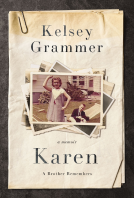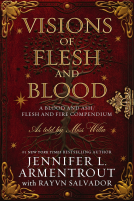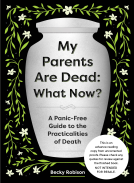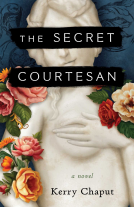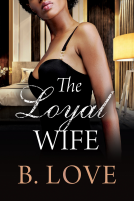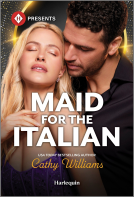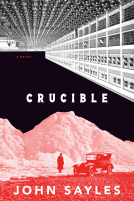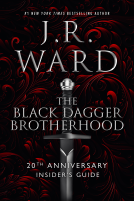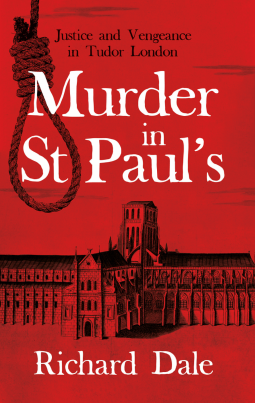
Murder in St Paul's
Justice and Vengeance in Tudor London
by Richard Dale
This title was previously available on NetGalley and is now archived.
Send NetGalley books directly to your Kindle or Kindle app
1
To read on a Kindle or Kindle app, please add kindle@netgalley.com as an approved email address to receive files in your Amazon account. Click here for step-by-step instructions.
2
Also find your Kindle email address within your Amazon account, and enter it here.
Pub Date Jun 28 2019 | Archive Date Sep 18 2019
Troubador Publishing Ltd. | Matador
Talking about this book? Use #MurderInStPauls #NetGalley. More hashtag tips!
Description
In 1514 a respected London Merchant, Richard Hunne, was found hanging in Old St Paul’s Cathedral. Whether it was murder or suicide was hotly debated but popular opinion, endorsed more recently by many historians, pointed to foul play by church officials. Around this central mystery, Dale has woven a story of murder, church politics and forbidden texts in turbulent pre-Reformation London.
Hunne’s widow, Anne, takes centre stage in this narrative as she attempts to solve and avenge the death of her husband. Her search for the truth will take her to Germany and Martin Luther’s revolt against the authority of the church, and up against powerful figures such as the English Lord Chancellor, Thomas More. She becomes involved in the new illicit trade of printing religious texts, and will suffer both imprisonment and the danger of execution. She is helped by her lover, a German Hansa merchant, and through her adventures she will move closer to, and finally solve, the brutal killing of her husband - a crime that has baffled historians ever since the body was first found hanging in St Paul’s.
A Note From the Publisher
Available Editions
| EDITION | Ebook |
| ISBN | 9781838599546 |
| PRICE | $6.99 (USD) |
| PAGES | 200 |
Average rating from 28 members
Featured Reviews
 Emily S, Reviewer
Emily S, Reviewer
It was great to read a book about the Reformation that doesn't focus on Henry VIII but on the lower classes, as way before Henry split with Rome many people in England and Europe were becoming resentful of the clergy's wealth and greed. I had not heard of Richard Hunne or the stand that he had made against the church, at a time when going against the church could result in your execution. There are many brave men and women in this story who risked their lives just to have the ability to read the Bible in the vernacular, something that is taken for granted today.
I really felt a sense of Tudor times within the book as the author's descriptions were very detailed, a lot of time and research has clearly gone into this.
I was worried that the book would be a little dry but I found it rattled along quickly and I was cheering Anne along all the way, the style put me in mind of Ken Follett in places! To get the most out of the book it might be best if you have some knowledge of the Reformation but then you wouldn't be reading this book if you weren't interested in this period!
 Susan F, Reviewer
Susan F, Reviewer
The historical fiction that I like best is historical fiction that takes a known event in the past and puts a believable and engaging story around it. And I especially like historical fiction when the author provides a bit at the back (or front, or somewhere) that tells which bits are known/accepted history, and which bits are the author’s speculation. I also like when I can learn something about a period without feeling as if I am reading a textbook. And, I’m a big fan of murder mysteries, so I’m happy when the “event” is a murder, or at least a suspected murder. Murder in St Paul’s meets all of my criteria for historical fiction, and I enjoyed it very much.
Often historical fiction relies on the use of a minor (or even made-up) character to tell the story – I suspect this can give the author a bit more leeway in telling their tale without contradicting what is known. In this case, the author, Richard Dale, has told the story of Richard Hunne through the eyes of Hunne’s wife, Anne. Anne is herself a historical figure, but as Dale indicates in his note at the end, she and her family are mentioned only briefly in historical records.
I especially enjoyed this book because I didn’t know much about this time period as seen from the viewpoint of “the common people”. And, although it’s fun to imagine that one is someone famous like Henry VIII, with wealth and power, I find I really do enjoy it more when the characters are a bit more like me, not necessarily at the top of society.
Per the publisher’s blurb, Richard Dale is a retired professor and a member of the Royal Historical Society, and this is the author’s first try at fiction. I think it was a success, and I’ll be looking for more titles from this author.
NOTE: I received an ARC of this title in exchange for an honest review.
 Reviewer 576442
Reviewer 576442
The setup of this book reminds of the Kingsbridge trilogy by Ken Follett. Conflicts between ordinary people and the Church are in both cases important themes. For Murder in St Paul’s this is even the main theme. No physical church is built in this case, but the common people are fighting for a religious Church that stands closer to them, beginning with a Bible that is written in their own language.
Given that the story of Richard Hunne is a true one and given that the author wrote some essays about the subject before, I expected the book to be somewhat lecturing at times, but – surprise! -- this is absolutely not the case. Richard Dale spends quite some words explaining things, but nevertheless is this a compelling and entertaining story.
Dale is apparently quite fond of words that are not common any more these days. You’ll find them throughout the entire book, but in most cases it is clear from the context what they mean. They strengthen the atmosphere of the time period in which this book is set and help the reader dive into that period. To help this even more, Dale has added some nice examples of how certain practical things worked in the sixteenth century, like for instance the organisation of sanitary services during an annual fair.
Richard Hunne was found hanged, but whether it was suicide or murder, remains unknown. The author has come up with a solution that makes sense and is realistic. He has made use of the available documentation about the case, and has added a life for Hunne’s widow Anne that is made up but also very believable. Murder in St Paul’s is a very well composed piece of historical faction and the author has succeeded in showing the reader how Reformists fought for their believes and how dangerous this was.
 Maria M, Librarian
Maria M, Librarian
This ARC was courtesy of netgalley - all thoughts and opinions are mine and unbiased
I've not read this author before but historical fiction is my thing and the Tudor period in particular so was in heaven being able to read an advanced copy of this
Richard Dale has taken a different tract here. Normally, in these types of novel, the author sticks to Henry VIII et al, but this focuses on lower classes in society which was a refreshing change.
Well written, well researched - if you are interested in the Tudor period, as I am, you will absolutely love this !!
Fantastic read
 Beata B, Reviewer
Beata B, Reviewer
*Many thanks to Richard Dale, Troubador Publishing and Netgalley for arc in exchange for my honest review.*
Some time ago I came across the case of Richard Hunne, an English merchant who opposed the Church's right to take his dead son's clothes as a payment for the burial, and in consequence was imprisoned in the Lollards' Tower and died in most mysterious circumstances. He almost immediately became the martyr for the Protestant Cause in England.
The novel is well-written, giving all details of Hunne's case, but also providing a panorama of the changes that England witnesses on her way to the break with Rome. The plot allowes to introduce Martin Luter, the Diet at Worms and its consequences.
Richard Dale wrote a solid historical fiction based on real events, with precise explanations of how the Catholic Church slowly but steadily lost its position in England. Anne, Hunne's wife was not a very believable character to me, however, I understand why Mr Dale made her the main character in his novel. If you want to learn more about the case of Richard Hunne, this book will not disappoint you.
This story is set at a time of great change. A time of Henry VIII and the church’s wealth and misuse of power been questioned by the people. Richard Hunne was a Lollard who believed they should be able to read the bible in English and to do away with all the indulgences of the church. Richard fell foul of the church in refusing to hand over his child’s christening robe to the church upon his death. He has been accused of heresy and dies in the tower of St Paul’s. Was it suicide like the church said or murder. Anne his wife spends her life on revenge against those responsible and making sure his work carries on.
This story is based on true life events but is an intriguing look at the background of the Hunne family and the part they played in the great change of the time.
I was given an ARC of this book by Netgalley and the publisher in exchange for an honest review.
An historical event that occurred in the 1500's is brought to life by the author whom weaves a story around this event and brings it to life. Brilliantly researched and written this novel is a must do for historical fiction fans. Thankyou to NetGalley for the ARC.
 Blaine D, Reviewer
Blaine D, Reviewer
I received a free advance copy of this book from NetGalley in return for an honest review. Let me say that this book grabbed my attention from Page 1. The book covers the religious trials of the Non-Catholic believers who live in London from 1511 through 1537. Very well done historical fiction with characters and plot drawn from real life people. We have a man burned at the stake for heresy and his wife vows retribution for his death. From there we are treated to a great story of life in that period, the spread of non-Catholic approved Bibles, the battle between the Church and King Henry VIII and on and on it goes, until the very end when enlightenment shines through for both a character in the book, as well as for all of us. We are treated to actual events and historical figures such as Henry VIII, Cardinal Wolsey, Thomas More, Martin Luther, the Council of Worms , the book burning in London and on and on it goes. Not a religious book, but rather a great book that takes us through those tumultuous years leading up to the banishment of the Catholic church in England. Well researched and written. A well-deserved 5***** rating for this book!
 Alison V, Reviewer
Alison V, Reviewer
I adore historical crime fiction and this fitted the bill perfectly. The book blended fact and fiction amazingly well, just as I was beginning to think I was reading a non fiction book a sentence changed it to fiction effortlessly. I can honestly say I have never read a book with this type of set up before. I have researched the author and he is obviously passionate about this chain of events in this time frame and this shows in the writing of this book. As others have said most books in the Tudor period centre around the King of Queen of the day and this was refreshingly different. I would heartily recommend this book to all.
 Eustacia T, Reviewer
Eustacia T, Reviewer
Now that I’m back home and have ready access to a library, I rarely accept ebooks for review. The odd NetGalley copy is normally the most I’d do, but when I heard about Murder in St. Paul’s, I was intrigued. Apart from the fact that it’s a historical mystery, which is something I enjoy, the story is set in St. Paul’s Cathedral, which is a place that I’ve actually visited.
Murder in St. Paul’s is centred around the death of Richard Hunne. Hunne is a Lollard, a man who believes that every Christian should be able to read the Bible (if you’re thinking that this sounds familiar, Lollardism is the precursor to modern Protestantism). When a greedy priest asks for his son’s christening robe in exchange for having performed last rites, Hunne decides to take the Church to court. Sadly, he ends up dead under mysterious circumstances and then posthumously condemned as a heretic.
Anne, Richard’s wife, is also a Lollard. And when she finds out about the death of her husband, she’s determined to find his killers and bring him to justice. The main bulk of the novel involves her trying to move on while looking for Richard’s killers, all the while living out her faith the best she knows how.
I really liked the topic of this novel. I didn’t know much about the Lollards apart from the fact that they followed Wycliffe, so it was pretty interesting to find out more. The book talks about the struggle between the clergy and the royalty, and the clergy and people like Anne pretty well. I finished this book having a better idea of the theological tensions in that time period.
That said, the writing felt a little dry and academic at times. It was somewhere between the style of a novel and the style of a true-crime novel, which made it a little hard to fully immerse myself in 16th Century London. It also felt, at times, a little too convenient – Anne was able to be at key points in Church history even if it took place outside of England – which was another point that made the book less immersive for me.
Gripes about the writing style aside, the topic of the book was good. I don’t think this is a conventional mystery, since it takes Anne years to find out what truly happened and there is no climatic denouncement that mysteries typically have, but it does shed a light into the life of a Lollard in the 16th century and how the clergy were viewed by various members of society.
 Kathleen C, Reviewer
Kathleen C, Reviewer
This is a thoroughly researched historical covering the turbulent times of the early 1500's when it was not safe to admit to having read the Wycliffe bible. Spiritual questioning of the powers of the church put the English populace in danger of being tried for heresy. One such victim was the husband of Anne, the main character of this book.
The author gives us a detailed account of how one woman might have taken up the cause of her husband after he was murdered by church sanction. She does not question her need and her right to carry on the work of getting the scripture transcribed into English.
She meets a German outside her door who has been beaten by street people acting against foreigners and invites him in for protection. As they become acquainted he shares with her how Luther is influencing church matters in Germany.
I don't want to spoil the story for others, but they end up getting married secretly (don't know why the publisher calls him her "lover") and she travels with him to Germany dressed as a male assistant, allowing her to be in public to hear Luther speak.
It is a thoughtfully constructed novel that provides a great deal of information on the Reformation and the trials believers went through during major changes.
Net Galley copy - Thank you
This is based on the real events of Richard Hunne's death in Lollards Tower. Many of the characters and events are real such as Cardinal Wolsey's burning of heretical books.
Henry VIII is on the throne and Richard Hunne is arrested for heresy. His wife Anne vows to avenge his death after he is found hanging in St Paul's Cathedral, whilst evidence emerges that he was murdered.
Her journey sees her secretly married to Hansa merchant who shares her beliefs and travelling to Germany where she meets with Martin Luther who is causing unease for the church.
Officials of the church are implicated in his death and Anne spends her life trying to increase reformist beliefs in London, putting herself in danger of being arrested herself.
This is such an interesting insight in to the events of the reform of the church and the threats and treatment faced by those with reformist beliefs. It is well researched and provides an explanation of the the history at the end of the book.
 Belinda M, Reviewer
Belinda M, Reviewer
This is definitely what I can a 'twofer' ie. two for one, a cracking read and some historical fact along the way. The story of Richard Hunne was interesting enough but then add to that the Hanseatic League, the bible in English and Martin Luther. Really clever piece of work.
The characters are well fleshed out, interesting and attractive, the detail of London in the 16th century felt just right.
From a literary perspective the writing is not of the quality of Wolf Hall but it takes and makes interesting a small part of history that is often underplayed.
Loved the use of the female heroine and whilst the trip to Germany and meeting Luther strained credulity it certainly added tot he pace and the atmosphere.
I'd definitely read another of his fiction books, particularly if he carries on melding fact and fiction at this level.
Being someone who loves to read Historical fiction, especially ones that take place in a Tudor England, this book is right up my street.
Before I crack on with my thoughts, I just wanted to say that I really enjoyed the 'historical note' and liked the fact that the leading charecters are based upon real historical figures.
The story starts with a man and his daughter looking onto a scene where they are preparing for an execution by fire, the scene was set with well and the grisly scene explained to the reader in detail, not overly, i hasten to add.,The victimes branded and forced to wear faggots on thier backs ( which is a bundle of sticks) and the last punishment was that a member of thier family were forced to set to pyre alight.
The man with his daughter described it as
"...an infernal scene from hell"
One of the victims of this now named 'Matyrs of Amersham' Willaim Tylesworth was indeed murdered at the stake just how it is explained in this first part of the book and just for being Protestant.
Essentially this book is a Murder mystery, even though the beginning seemed heavy on the religious politics.
The narrator of the story is Anne Hunne, the wife of Richard Hunne who died in Lollards Tower,Henry VIII is on the throne and Richard is arrested for heresy,Anne is determined to avenge his death. He is found hanging in St Paul's Cathedral ( hence the title) and as she gathers information evidence emerges that he was murdered.
This as I have mentioned before, is all based on fact and you can tell this, by the way in which it reads, lots of research and love for this era is evident and that just made , for me, even better.
This pre reformation book is so much more than I have described today and well worth a read, I love books that make me want to know more into the real people that were the inspiration behind this book.
I wished that this was an audiobook and came in Hardcover, my only complaint :)
 Stephanie N, Reviewer
Stephanie N, Reviewer
This is a really fascinating book, that brings to life a dangerous time in history. The story of Richard Hunne is both tragic but almost comic. Trying and then executing an already-dead person really does border on the ridiculous.
The author must have done a tremendous amount of research to bring this period to life. There is so much detail in every scene, but it’s never overwhelming. We get a strong sense of life in the sixteenth century – clothes, language, food, attitudes, politics, religious turmoil… everything.
The story is wonderfully written, and is gripping from the start. The characters emerge gradually and it’s rewarding to see them develop as the novel progresses. Anne Hunne, our heroine, is an intriguing woman. She’s strong, principled, determined, and needs to be given the terrible events that befall her family. She’s someone you won’t forget in a hurry.
All in all, this is a remarkably powerful and accomplished book, a real pleasure to read, although not always easy given the intolerant events it portrays viewed from our more enlightened times.
I loved this book. A richly populated tale of intriguing characters. Kept me interested until the end. Recommended.
In 1514, during the reign of Henry VIII, Richard Hunne a prominent and well to do cloth merchant was found hanging to death in the Lollards Tower of St. Paul's Cathedral. A Protestant by faith, he was vocal against the corruption rampant in the Catholic Church of England and was arrested and charged as a heretic when he sought out the English common law courts to challenge the church's authority after a dispute with a priest over his infant son's funeral and Hunne's refusal to give up his son's christening gown as a standard mortuary fee.
The Protestant populace cried foul play and blamed the top officials of the Catholic Church of cold blooded murder while the Catholic Church claimed it was suicide, went ahead with their charges of heresy against Hunne and publicly burnt his already dead body on a stake.
Murder in St. Paul's recounts this historical event in honest detail with Richard Hunne's wife, Anne Hunne, taking centre stage with her quest to avenge her husband's murder alongside the historical, political and religious turmoil of the period which marked the beginning and spread of the Reformation movement, ultimately leading to the Catholic Church losing its seat of authority when England chiefly became a Protestant nation under the reign of Elizabeth I. It takes Anne 20 years to finally get the answers she is looking for but you can sense that it is not the closure she was looking for; because the conflict still remains, only the tables have turned. People are still the victims, only the denouncement based on religious beliefs has changed. So in a way, nothing has changed.
My thanks to Netgally, Troubador and Matador publishing and the author Richard Dale for giving me an e-Arc of the book. I apologise for putting up the review late even though I had finished reading the book in October. 3-3.5* rating.
 Pauline V, Reviewer
Pauline V, Reviewer
I downloaded this mystery from Netgalley because, frankly, how often do you read true crime set in the 16th century? I was intrigued, all the more as the writer seems to be quite thorough in his historical research.
In 1541, the body of a respected London merchant was discovered in dubious circumstances after he’d been imprisoned for his heretic thoughts. Technically he was found dead in his cell of the prison tower that belonged to St. Paul’s Cathedral, hence the catchy title. This man, Richard Hunne, was a Lollard, pre-Luther challengers of the Catholic church and faith (I had heard the name in a BBC history DVD, but that was the extent of my knowledge). He believed that the clergy abused its position and he wanted to be free to read the Bible in English. Hunne had specifically refused to pay the customary fee to his priest after the burial of his 5 year old boy.
Hunne’s death in unlawful circumstances did spark anger and contestation among the London population, exactly what the Church didn’t want when it made big trials and perfectly justified executions of heretics. Despite him being dead, Hunne was actually tried and sentenced to be burnt at the stake (the pure definition of overkill, wouldn’t you think?). But because of the general outrage, church officials were later charged of murder for Hunne’s first(?) death (can we say that?) and punished, tipping the balance in favor of the King. Henry VIII 1-Church 0 (but the game was just starting, as you know).
It’s not really a mystery or a true crime book, because we have a pretty good idea of who killed this particular Lollard from the beginning: the same ones who insisted to kill the other Lollards in the name of true religion, after a showy trial for the sake of doing things legally and rightfully. Of course Richard Hunne didn’t really fight for a simple christening robe (the contested fee) but for principles. And of course, what goes behind the outrage at his death goes way beyond a simple man. We see the early Tudor King start to fight against the Church and the pre-Reformation atmosphere of surveillance and persecution, and it’s rather fascinating.
The point of view the author chose is that of Richard Hunne’s wife. Anne, a Lollard too, goes through the pain of losing a child, then sees her husband challenge the institution at the cost of his life, and becomes a widow in danger of more accusation. Fearless and passionate, she seeks out the truth about what happened to her husband in the Tower, and this quest will take most of her life, while she continue to support the underground Lollard movement by copying and distributing Bibles in English.
The book is very interesting for anyone interested in history and particularly this period. Most books about Tudors center on the King and queens, on courtiers and high level maneuvers, even famous ones like Hillary Mantel’s Wolf Hall which I really loved. This book centers on the common woman, a upper-middle class wife of a merchant tailor with convictions. I can’t say Anne’s character is fully fleshed-out, but her trajectory is interesting and she gets to witness (if through the back door) or hear about a lot of historical events. Of course Tudor England was not an isolated island, and being in the merchant community put her in contact with people travelling from Germany and the rest of Europe where the Catholic church was also criticized and challenged. Her being there at convenient moments made me slightly roll my eyes (like getting to meet Luther himself by chance), but the topic of the book is what held my interest throughout. The style of the narration is a bit too academic and formal, and the book suffers from the comparison with Wolf Hall where readers had a sensory and intimate contact with this past world. Still, it was a worthwhile read and I learnt a lot.
I, like many, others enjoy when an author takes on a long forgotten event or mystery, dusts it off, puts a new spin on it, or attempts to provide a credible alternate theory.
In this instance it is the mysterious death - or murder - of Richard Hunne - a medieval death in custody if you will, that was written off a suicide then heresy once the manner of Hunne's death became known. Whilst familiar with the Tudor period, I am not so much a student of Reformation history - so this episode was one I quite possibly passed over.
"Hunne’s widow, Anne, takes centre stage in this narrative as she attempts to solve and avenge the death of her husband. "
I am not sure what I was expecting to be honest, as Hunne's wife is equally elusive as the facts surrounding Hunne's death. So I went in search of Anne - and found very little that I could use to corroborate or support the idea that she took on the Establishment in such a way as portrayed herein. I know the author, Richard Dale, prefaces the story by letting us know that he made that character of Anne stronger than she may have actually been - we will never really know how close to the truth this may be - and this fascinates me - how close the fictional and the actual historical figure are to being the same (and rather maddening when one cannot assess the truth of it all).
I guess, for a plausible scenario to be put forth or light to be shed on a heinous act, someone must investigate - and who better to champion a dead man than his wife.
 Susan M, Reviewer
Susan M, Reviewer
In 1514, in the early years of the reign of Henry VIII, a wealthy London Merchant, Richard Hunne, was found hanging in the Old St Paul’s Cathedral. Was it murder or suicide. This is a fictional account of one view of that event.
To the background of the teachings of Lollard and Martin Luther, his widow Anne, attempts to determine the truth, while trying to keep safe in a country where being anti-church can bring death.
An interesting historical fictional account of these dangerous times, for people who did not believe in the all powerful church that existed across Europe at this time.
Murder in St. Paul's is a interesting historical fiction novel with interesting characters. I enjoyed the characters and storyline.
 Reviewer 355947
Reviewer 355947
I expected to go reading and reviewing a murder mystery when I picked this book. However it turned out to be a dramatised history book.
Early 16th century England: the churches are all powerful and the clergy rules like princes or maffioso. Within the religious circles but also among the commoners an interest has grown to return back to the Bible as a source of Christianity and to study it in the common language and recognising only 2sacraments instead of 6. The church regards that as heresy and people are even burned at the stake. When a wealthy London merchant takes the church to court he is declared a heretic and found dead in his cell. His widow wants to find out what happens.
Yes it still sounds like a murder mystery does is not. But the novel focusses on all the people involved in the case and many outsiders with a link to the Reformation. Even for someone like me with a Protestant upbringing and a love for history the first half was quite hard to get through. But it does give an interesting and very detailed view of living in London in those days and is filled with all kind of facts. Did you know that Sinterklaas as celebrated in Holland with straw laid out for his horse in front of the chimney is in fact Wodan / Odin on his horse Sleipnir?
The second half was a lot better and is more focussed on the widow. So in the end you do some murder mystery at last.
What is a real plus of this book is that it gives you an idea of how this tumultuous period was for people living in it. First the Lollards who wanted to read an English bible and were persecuted for it, Then the influence of Luther and then Henry XIII declaring England free from Rome and abolishing priesthood.
What reminded me of my own mother was the reflection at the end of the widow that Jesus declared that his father had many rooms in heaven and that she had to admit that there were also Catholic bishops going to heaven. just like Protestant martyrs.
I was not sure about this book....I don’t usually read book set in this time frame but the writing so rich and powerful; I was completely drawn into the murder of Richard Hunne.
This novel takes place in a time when life was driven by beliefs and those who disagreed with the Church were dealt with harshly. People did not know who to trust and whether the charges against you were true or false lives were ruined.
Richard Hunne was found hanging in his cell but there are immediate questions as to whether this was a suicide or murder. The coroner went to great pains with his investigation and that was fascinating.
The remainder of the story is about Richard’s widow and her desire to learn all the facts that lead to her husband’s death.
I found this book to be entrancing and beautifully written as well as meticulously researched.
Readers who liked this book also liked:
Jennifer L. Armentrout and Rayvn Salvador
Reference, Romance, Sci Fi & Fantasy
Publishers Lunch
General Fiction (Adult), Nonfiction (Adult), Teens & YA
Becky Robison
Business, Leadership, Finance, Parenting, Families, Relationships, Self-Help
